Below, you’ll find a story that was recentlysharedon Reddit, detailing how one employee attempted to maliciously comply with their employer’s mandatory overtime policy, as well as some of the replies amused readers left.
This employee’s boss was adamant that everyone works overtime during the holiday season

Image credits:MART PRODUCTION (not the actual photo)
So they decided to use their overtime hour to do absolutely nothing
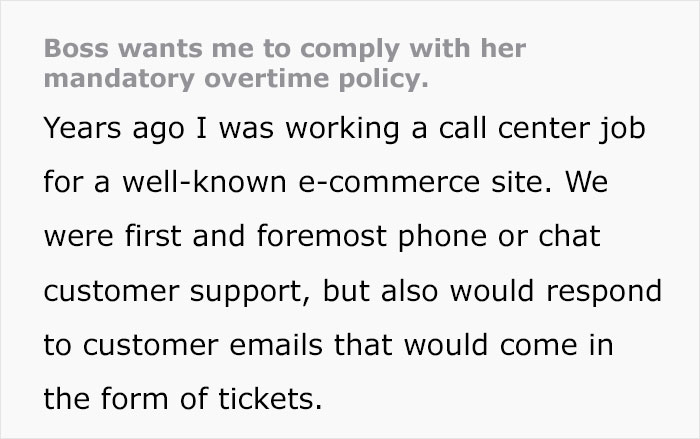
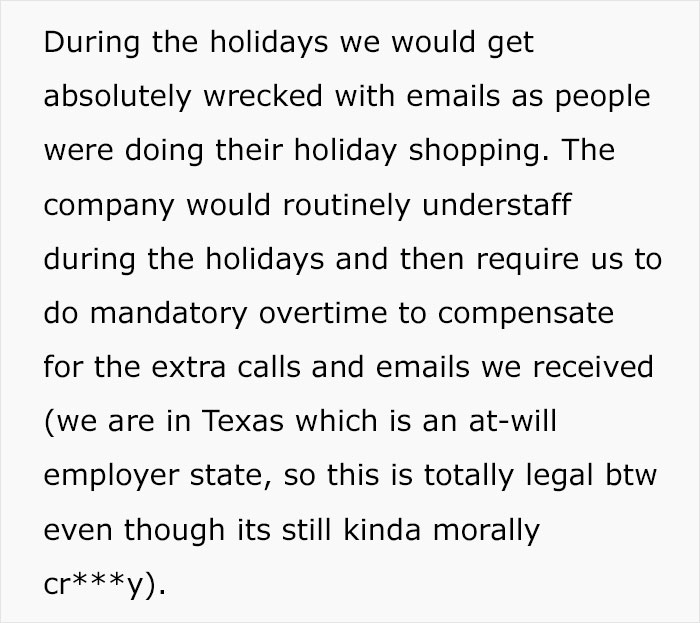
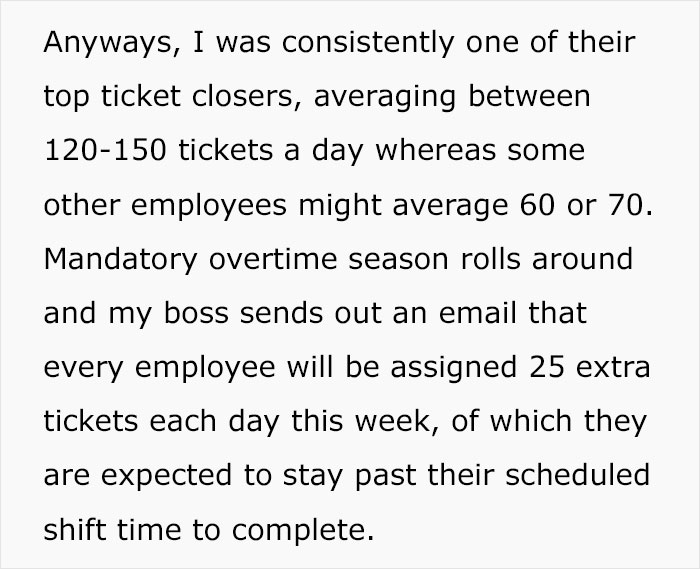
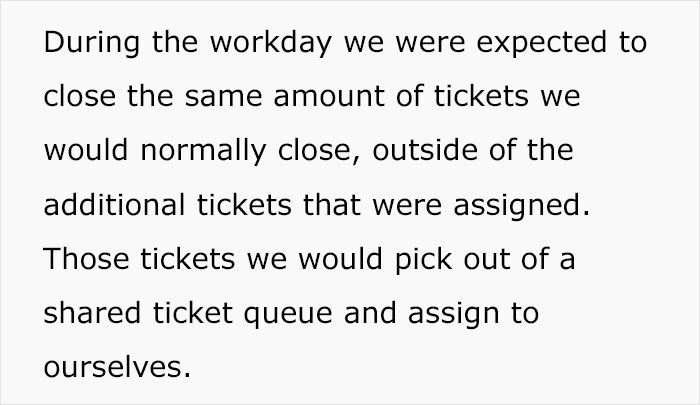
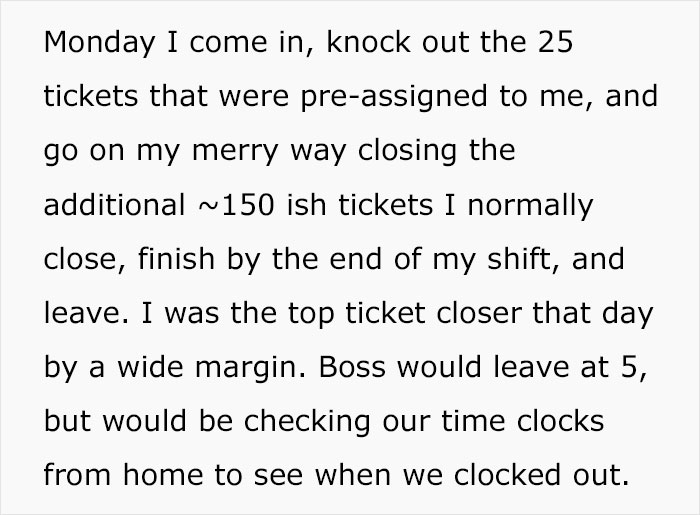
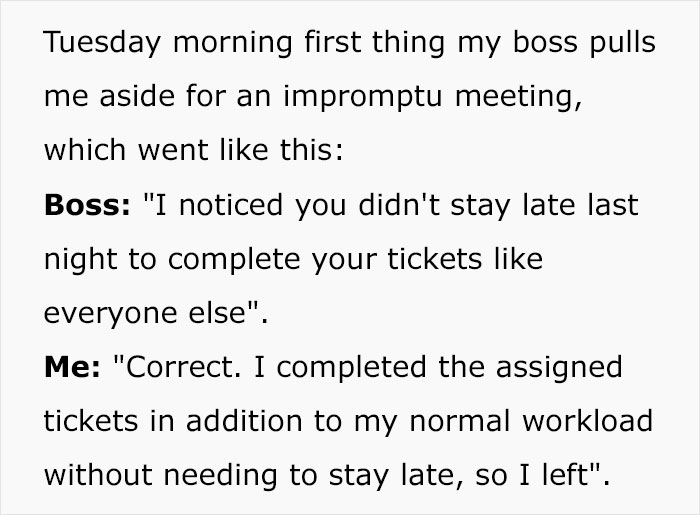
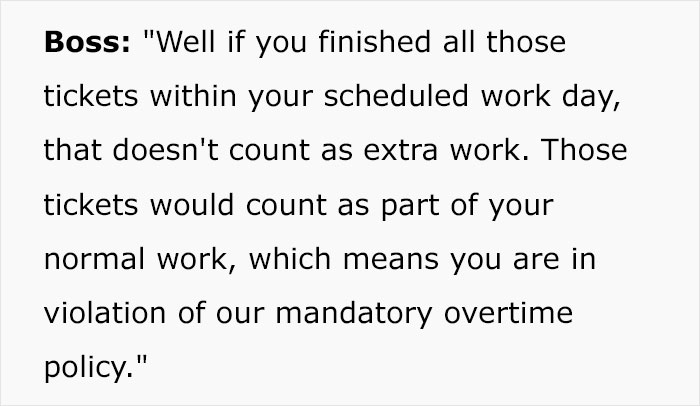

Image credits:Antoni Shkraba (not the actual photo)
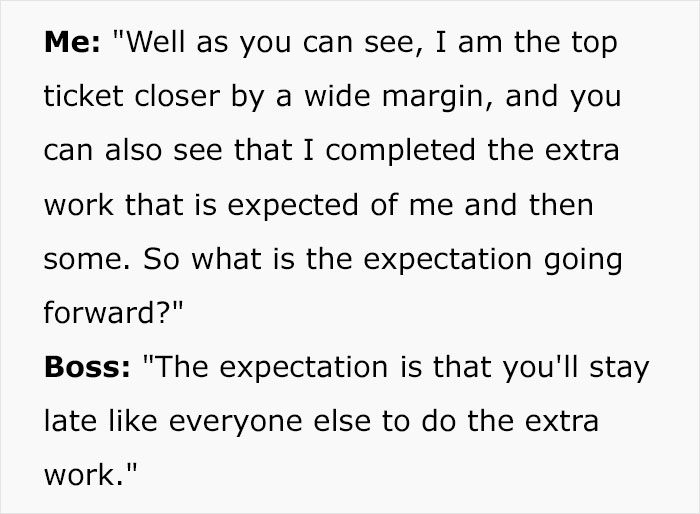
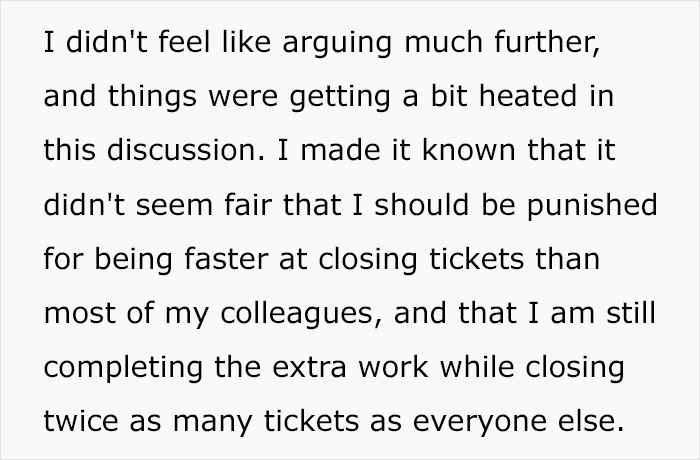

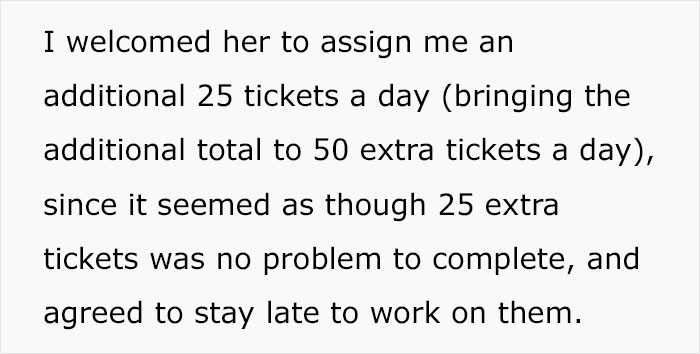



Image credits:cottonbro studio (not the actual photo)
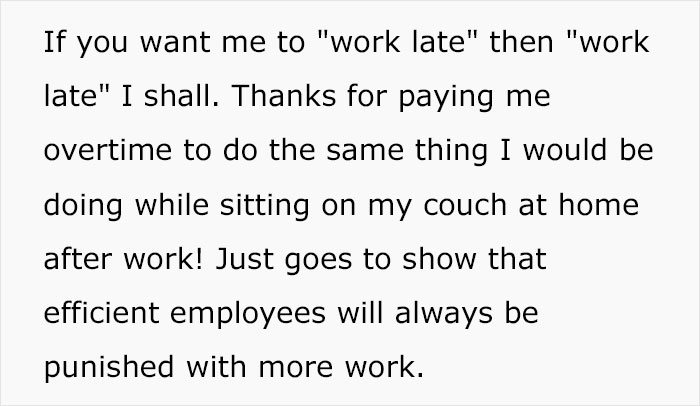
Image credits:AdMinimum3886
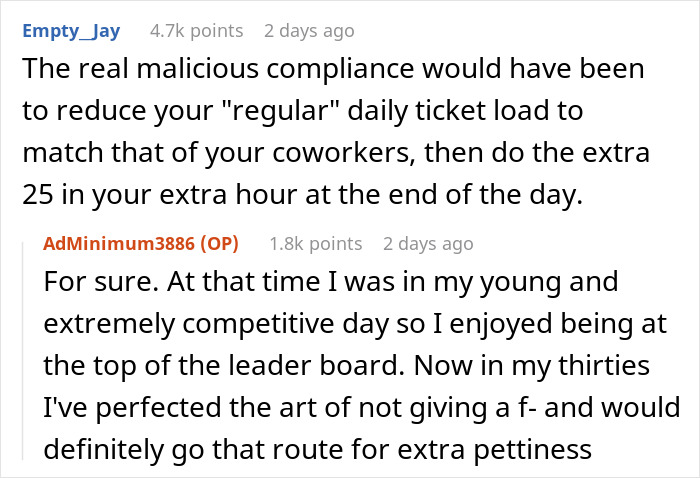
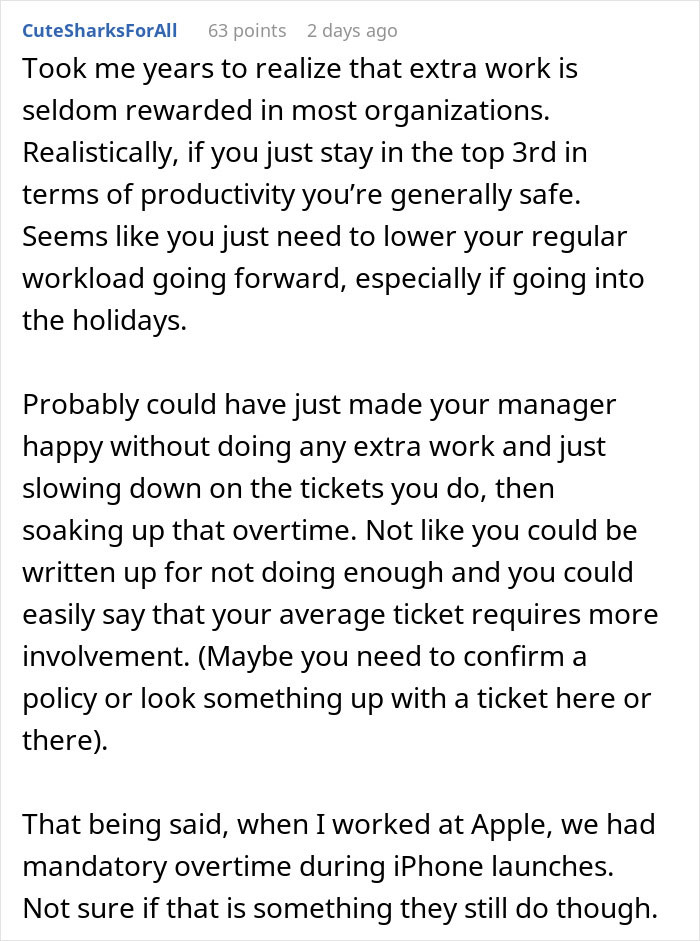
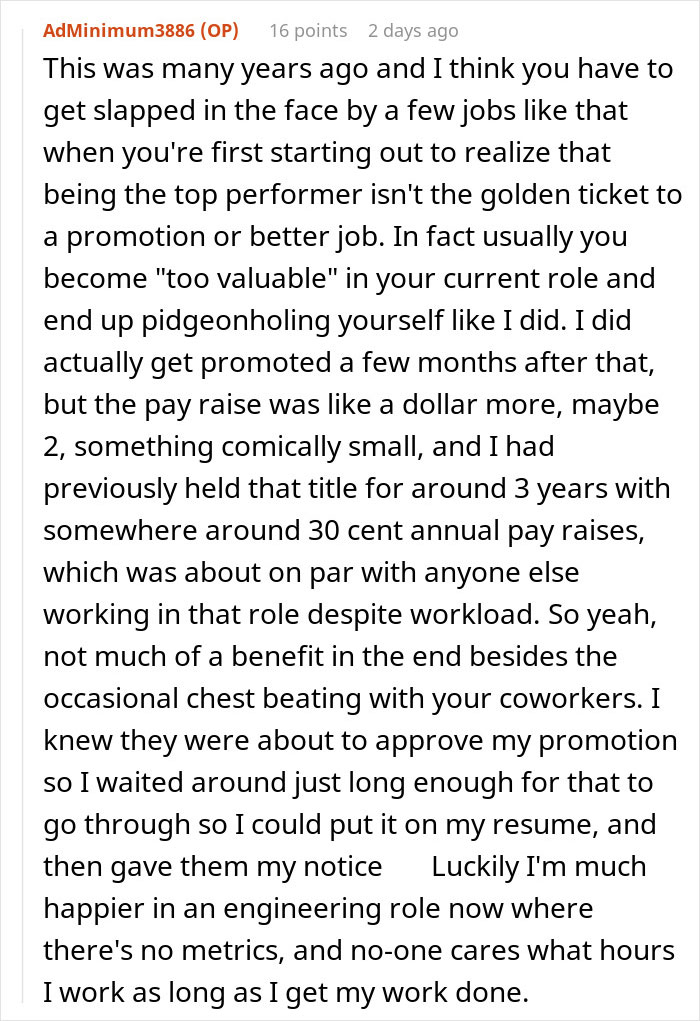
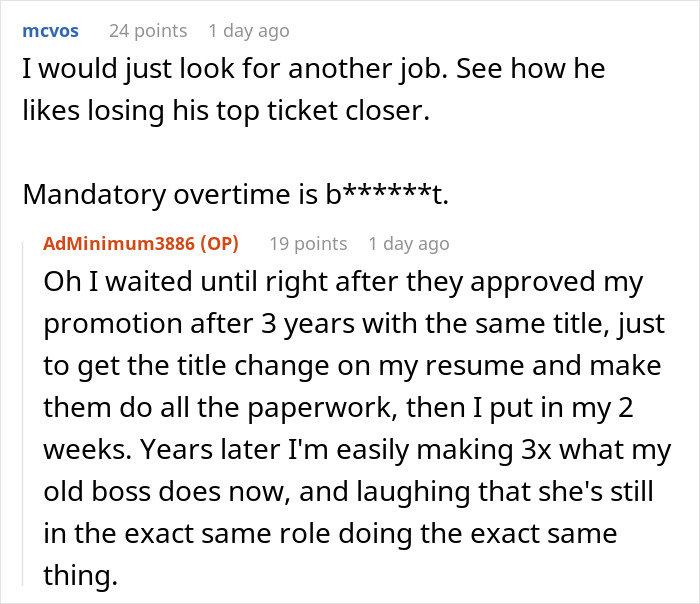
Utilizing overtime is a common way for employees to earn more money and for companies to be more productive

Image credits:fauxels (not the actual photo)
As the employee noted in this post, mandatory overtime might be obnoxious, but it is perfectly legal in the United States. According toHomebase, overtime hours begin once employees start working over 40 hours in one week. At this point, they are entitled to 1.5 times their hourly wage for every extra hour they work. And while employers are allowed to make this mandatory, and workers can be fired for refusing to work overtime, there are a few limitations surrounding overtime work.
TheFair Labor Standards Actdoes not put a cap on how many overtime hours workers can accumulate, but there are instances where bosses cannot require extra hours. For example, if an employee’s contract explicitly states that they will not be working overtime, demanding so would be a violation of their contract. Workers also can’t be expected to work overtime if it poses a health or safety hazard. If employees are dangerously fatigued or at risk of becoming ill, they cannot be expected to stay any longer.

Image credits:Mizuno K (not the actual photo)
If their employer is not adequately compensating for overtime hours, workers should not stay longer than 40 hours a week. This could happen if their boss misclassified them as employees exempt from overtime pay, their boss decided to deduct overtime pay due to poor performance, their employer deducted payment for breaks to avoid compensating for overtime or they were not paid overtime for mandatory training during work hours.
While there can be benefits to working overtime, such as having the opportunity to earn additional pay and being able to be more productive in the workplace, there are certainly downsides to it as well.The University of Phoenixexplains that working overtime often can make employees more prone to burnout, can harm their work-life balance and can actually decrease their productivity. If a worker is constantly exhausted and stressed, they might not do theirjob as well as they could have if they had adequate rest in between shifts.
While there are some benefits to overtime work, companies should consider the downsides as well

Image credits:Ron Lach (not the actual photo)
Companies who require their employees to work overtime tend to focus on the benefits they’ll see, but there are some cons for them as well. The University of Phoenix notes that it’s likely for employees to become less engaged while working if they’re burnt out or resentful about having to stay longer than usual. There are also increased costs, when having to pay workers 1.5 times their normal rates, and there are risks that turnover rates will rise if employees are unhappy.
Readers had mixed reactions to the story, as many noted that the boss actually got what she wanted in the end


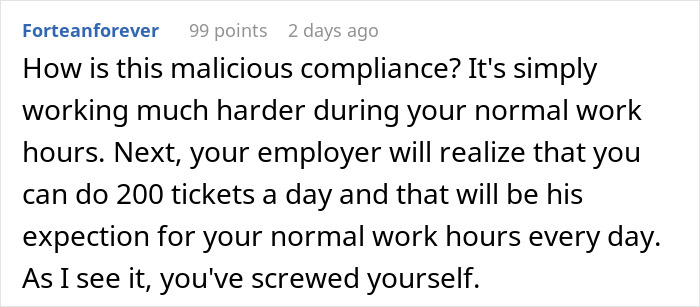



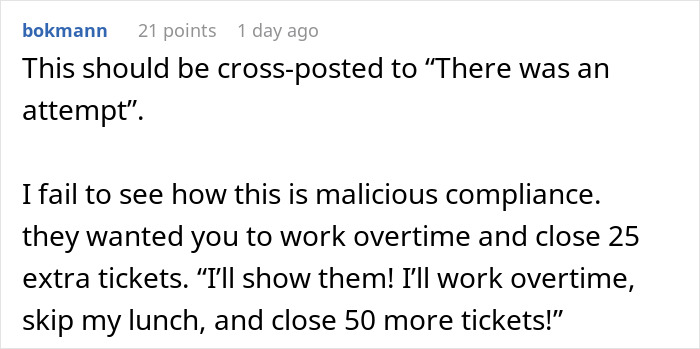





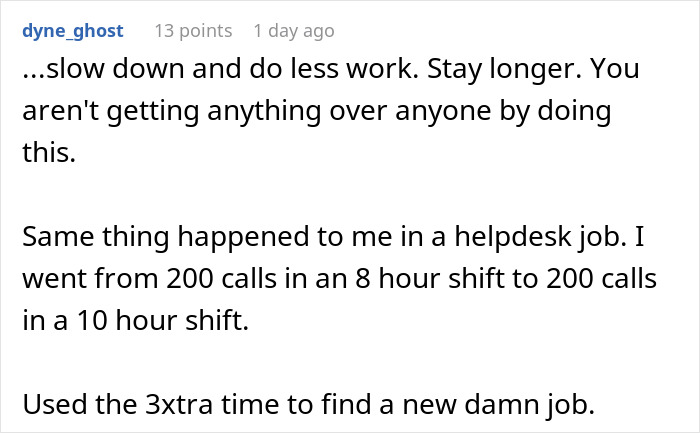
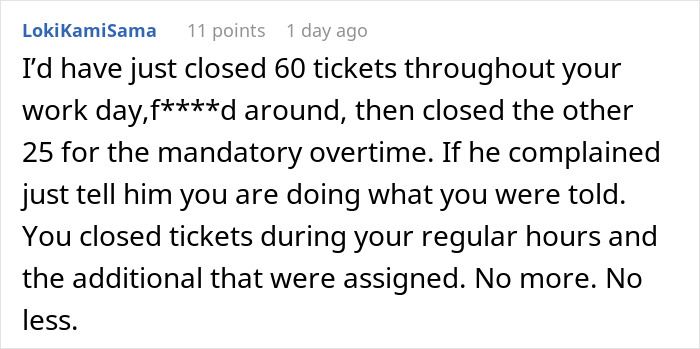
 Gabija Saveiskyte
Gabija Saveiskyte
Indrė Lukošiūtė
Justinas Keturka
Work & Money